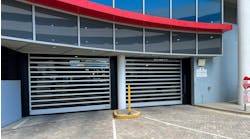You probably already recycle common office materials like printer paper, cans and bottles. But what about old electronics? Office equipment contains financially valuable – and environmentally harmful – materials and components. When this equipment is no longer used at work, it is called electronic waste, or e-waste.
What is E-Waste?
E-waste is a broad category that covers all sorts of electronics, many of which are commonly found in the workplace:
- Computers, monitors and other computing equipment
- Mobile devices, such as smartphones and tablets
- Audiovisual equipment, like TVs and stereos
- Imaging equipment, including printers, copiers, scanners and fax machines
- Rechargeable batteries
- Metering devices
- Data center equipment, including servers, uninterrupted power supply (UPS) units, racks and more
- Microwaves, ovens, refrigerators and other kitchen and breakroom appliances
Valuable materials such as glass, oil-based plastics and precious metals are used in office equipment. These materials can be used again and can benefit your company financially.
“Nothing is too big and nothing is too small,” explains Cynthia Duke, founder and CEO of Christie Technology Corporation, an EPA-certified electronics recycler. “Our philosophy and our certification require us to try to resell the equipment first. Any device that works can be sold anywhere in the world. If it’s not working, it can’t go outside the U.S. The second priority is to harvest parts to make something else work. If that doesn’t work, we’ll take the equipment apart and send them downstream to be recyled and reused with nothing going to the landfill.”
Possible Financial Benefits of E-Waste Recycling
Many e-waste recycling haulers offer rebates for your e-waste because they can harvest the valuable metals inside certain electronics, including silver and palladium. Duke typically negotiates a contract that awards the customer a certain percentage of the proceeds after donated equipment is sold. You may also be able to get a tax break for donating old computers, IT equipment and certain other electronics to nonprofits.
Help BUILDINGS Shape 2019!
What BUILDINGS resources are most valuable to you? What would you like to see us provide?
Please take our short (under 2 minutes) survey - just 5 short questions.
Thank you!
Your organization’s financial advisors can determine which route is best. Either way, you’ll be able to reduce your stockpile of outdated equipment and receive a financial return at the same time.
Environmental Benefits of E-Waste Recycling
Some electronics also contain lead, nickel or mercury, which can leach out into the environment if they’re not handled correctly. These elements and chemicals can wind up in the air, water and soil, potentially harming not only people but also local plants and wildlife.
CleanRiver, a recycling solution provider, suggests creating a culture at your organization that encourages people to bring their own e-waste from home, as this will both keep extra e-waste out of the landfill and increase your rebate.
“Depending on the volume of equipment and the size of the company, we’ll offer employee days where employees can bring in equipment from home and we’ll process it just like we process the company’s electronics,” Duke adds. “The employees can get rid of things they’ve been afraid to dispose of – maybe there’s data on it and they don't trust taking it to a random vendor to be recycled. That also gets them thinking about the importance of recycling electronics.”
How to Find an E-Waste Recycler
Many manufacturers and retailers recycle old electronics, including the third-party verified members of the EPA’s Sustainable Materials Management Electronics Challenge. Reach out to the manufacturer or vendor of your old equipment to see if they’ll take it.
The EPA also certifies electronic recycling companies under two standards, the Responsible Recycling Standard for Electronics Recyclers and the e-Stewards Standard for Responsible Recycling and Reuse of Electronic Equipment. Use either or both certifications to vet potential recycling partners to ensure they prioritize safe material management, human health, the environment and the reuse of recoverable materials.
Christie Technology Corporation is certified under both programs, Duke notes. Both require independent audits nad reviews, including surprise inspections, to ensure that certified recyclers are following procedures correctly.
“If you have a lot of confidential information and you don’t want that data getting into anyone else’s hands, looking for a company that has gone through the certificiation process is highly recommended,” Duke explains.
7 Questions to Ask Potential E-Waste Partners
The industry group Telecommunications Industry Association recommends asking e-waste recyclers these questions before you partner with them:
- How do you destroy data that still exists on hard drives and mobile devices? Are data storage devices both wiped and physically shredded? Ask for a written record of the data.
- Do you have an environmental management certification in place or follow recognized third-party environmental guidelines?
- Have you had any environmental or safety violations in the last five years?
- Do you use other business partners or service providers for part of your processing? Ask about their environmental or recycling certifications, management practices and whether logs of processing are available.
- How much of the materials you receive are recycled vs. disposed?
- Do you carry general liability and environmental liability insurance? Ask about the amount of coverage.
- Do you accept products that contain mercury lamps? Ask how this disposal is handled.
“Ask if you can come and visit their facility,” adds Duke. “If they’re skittish or shy away from that, you don’t want to do business with them. Any recycler should be more than happy to show you around their facility.”
Expanding your recycling program to include e-waste stands to benefit the environment, your building staff and your organization’s bottom line. Reach out to local recyclers today to get your e-waste recycling initiative started.
Two handpicked articles to read next:




